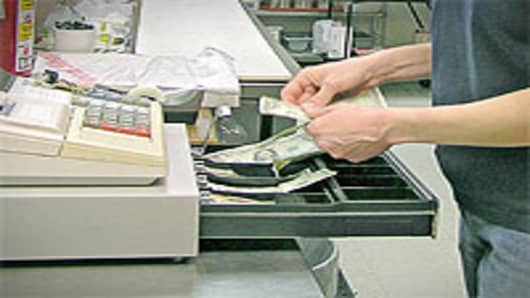Central banks' policy of printing money to try and stimulate weak economies is unlikely to result in significantly higher inflation, Rob Carnell, chief international economist at ING, wrote in a market note.
The Federal Reserve and the Bank of England have embarked on two rounds of quantitative easing — a policy by which the central bank buys assets in the markets in order to prop up their prices – and many analysts fear that over the long term, this will lead to a surge in inflation.
Famous investor Jim Rogers warned recently that the U.S. is likely to go through a period of stagflation worse than in the 1970s, when average inflation in the U.S. was at 8 percent, while unemployment hit a peak of 9 percent.
There is a link between quantitative easing and inflation but "this QE-generated inflation, while undeniable, is not the stuff that rampant inflation is made of, and let's face it, this is what the inflationist argument is all about, not just a temporary slight spike above target," Carnell wrote.
UK inflation jumped to a three-year high on Tuesday, with some analysts blaming the Bank of England's policy of buying gilts for the fall in the pound's exchange rate , which has pushed up the costs of energy, raw materials, clothing and food imports.
Inflation effects stemming from quantitative easing "tend to be one-offs" with a drop in their influence in the inflation figures after 12 months, he wrote, adding that a surge in prices could be caused by other factors, which are not present in the current circumstances.
No Risk
There is no wage-price spiral, as wage indexation was largely abandoned in the 1980s and strong centralized collective bargaining is a "historical relic," Carnell explained.
Another reason why inflation will not surge is the fact that monetary growth, as measured by "broad" money, remained soft and only "base money" – deposits on the current account of the central bank, notes and coins in circulation – expanded, he said.
If quantitative easing were to result in a boost in bank lending, which in turn would mean increased consumer spending or business investment, it would mean that the stimulus was working and that the rationale for further money-printing was ebbing, according to Carnell.
If the measures work, central banks will stop quantitative easing, thus eliminating the danger of rampant inflation, he said.
Other analysts have suggested that governments in developed, highly indebted countries want inflation to rise so it can erode their debt, but that "is just wishful thinking," Carnell wrote.
"Unlike the bad old days, the mechanism for creating inflation rests not with governments, but with the central banks, and they are still independent," he added. "If that independence is wrestled away in coming years, then there might be more reason to worry. But such a highly dubious step is unlikely to be undertaken."


